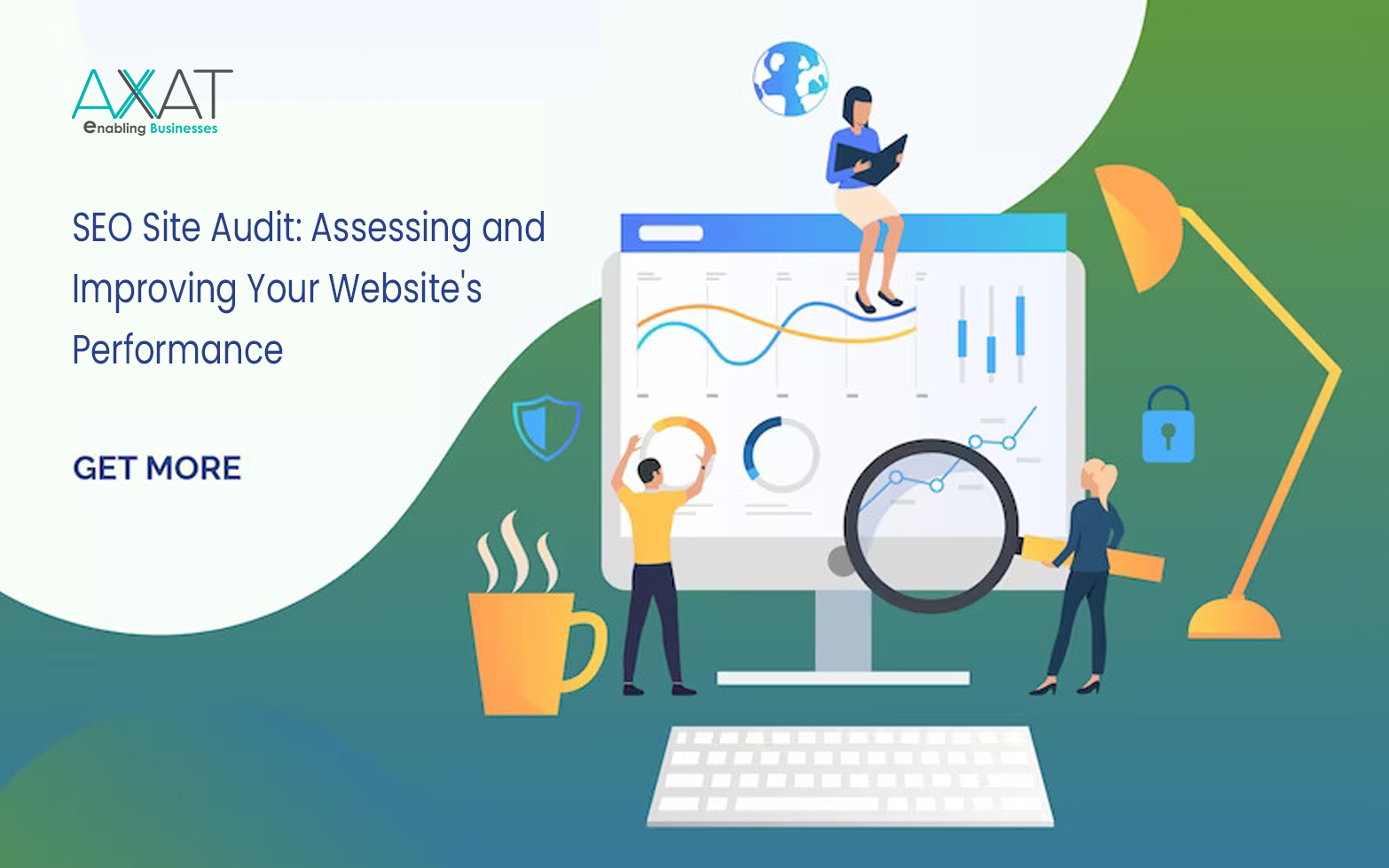An SEO site audit involves evaluating various aspects of your website to identify areas of improvement and optimize its performance. In this blog post, we will explore the importance of conducting an SEO site audit and provide you with valuable insights on how to assess and enhance your website's performance.
1) Understanding the Importance of an SEO Site Audit:
A. Boosting Organic Search Visibility: An audit helps identify SEO issues that may be hindering your website's visibility in search engine results pages (SERPs). Addressing these issues can significantly improve your organic search rankings.
B. Enhancing User Experience: A site audit allows you to identify and rectify any usability or technical issues that might be affecting user experience. Improving user experience can lead to higher engagement and conversion rates.
C. Staying Competitive: Regular audits help you stay ahead of your competitors by identifying emerging trends, optimizing content, and enhancing your website's overall performance.
2) Conducting an Effective SEO Site Audit:
a)Technical SEO Analysis:
- Evaluate website speed and performance.
- Check for crawl errors and broken links.
- Assess mobile-friendliness and responsiveness.
- Optimize website structure and navigation.
B) On-Page SEO Analysis:
- Review page titles, meta descriptions, and headers.
- Analyze keyword usage and optimization.
- Assess content quality and relevance.
- Optimize internal linking and URL structure.
C) Off-Page SEO Analysis:
- Evaluate backlink profile and quality.
- Assess social signals and online reputation.
- Identify opportunities for link building and brand promotion.
D) User Experience Analysis:
- Evaluate website design and layout.
- Assess site accessibility and ease of navigation.
- Analyze engagement metrics and bounce rates.
- Optimize for mobile devices and different screen sizes.
3) Implementing Site Audit Recommendations:
- Prioritize Issues: Address critical issues first, such as broken links or duplicate content.
- Create an Action Plan: Develop a roadmap for implementing necessary changes based on the audit findings.
- Monitor Progress: Regularly track and measure the impact of the implemented changes on your website's performance.
- Stay Updated: Continuously monitor SEO trends and algorithm updates to ensure ongoing optimization.
4) Audit Tools You Can Use for Different Aspects of Your Site Audit:
These SEO tools provide valuable insights and data that help identify SEO issues and opportunities for improvement.
a) Google Search Console: Google Search Console is a free tool provided by Google that helps you monitor and maintain your website's presence in Google's search results.
It offers essential features for conducting an SEO site audit, including:
- Crawl Errors: Identifies any crawl errors that may be preventing Google from indexing your web pages properly.
- Indexing Status: Provides information on which pages are indexed by Google and alerts you to any indexing issues.
- Search Performance: Gives insights into search queries, impressions, click-through rates, and average position in search results.
- Mobile Usability: Assesses your website's mobile-friendliness and highlights any usability issues on mobile devices.
b) Google Analytics: Google Analytics is a powerful web analytics tool that provides in-depth data about your website's performance and user behavior.
It offers valuable insights for analyzing user experience and engagement metrics, including:
- Bounce Rates: Measures the percentage of visitors who leave your site after viewing a single page, indicating potential issues with user experience or content relevance.
- User Flow: Shows the path users take through your website, helping you identify areas where users may be dropping off or experiencing difficulties.
- Conversion Tracking: Tracks goal completions, such as form submissions, purchases, or newsletter sign-ups, allowing you to assess the effectiveness of your conversion funnel.
C) SEMrush: SEMrush is a comprehensive SEO tool that offers a wide range of features for conducting a thorough site audit.
It provides detailed insights into various aspects of your website, including:
- Site Health: Analyzes technical SEO issues like broken links, crawlability, and site speed.
- On-Page SEO: Assesses keyword optimization, content quality, and internal linking structure.
- Backlink Audit: Identifies toxic or low-quality backlinks that may be harming your website's search rankings.
- Competitor Research: Allows you to analyze your competitors' SEO strategies and identify opportunities for improvement.
D) Moz: Moz is another popular SEO tool that offers an array of features for conducting an SEO site audit.
It provides insights and recommendations for improving your website's performance, such as:
- Site Crawl: Identifies crawl errors, duplicate content, missing meta tags, and other technical issues.
- Keyword Analysis: Helps you identify relevant keywords, track rankings, and optimize on-page content.
- Link Explorer: Analyzes your backlink profile, identifies link opportunities, and monitors link quality.
- Page Optimization: Offers suggestions for improving page titles, meta descriptions, and headers for better search visibility.
E) Ahrefs: Ahrefs is a comprehensive SEO toolset that provides robust features for auditing and optimizing your website's SEO performance.
Some key features include:
- Site Audit: Crawls your website to identify and prioritize technical SEO issues like broken links, crawl errors, and duplicate content.
- Backlink Analysis: Analyzes your backlink profile, evaluates link quality, and identifies potential link-building opportunities.
- Content Explorer: Helps you discover popular content in your niche, analyze competitors' content strategies, and find content gaps.
- Rank Tracking: Tracks your keyword rankings in search results and provides insights into your website's visibility over time.
By using these audit tools, you can gain valuable insights into your website's performance, identify SEO issues, and implement effective strategies to optimize your website for search engines and users. Remember to choose the tools that align with your specific audit needs and goals.
Final Thoughts
Conducting an SEO site audit is a vital step in optimizing your website's performance and driving organic traffic. Regular audits and keeping up with SEO best practices will help you stay competitive in the ever-evolving digital landscape. Start auditing your website today and pave the way for a successful online presence.
